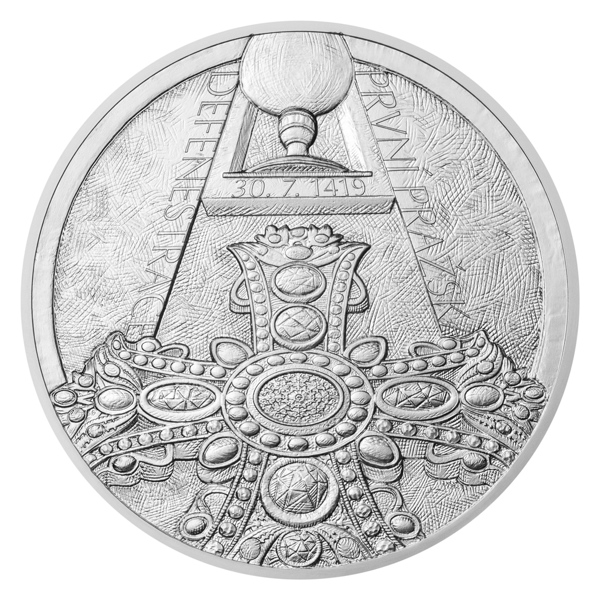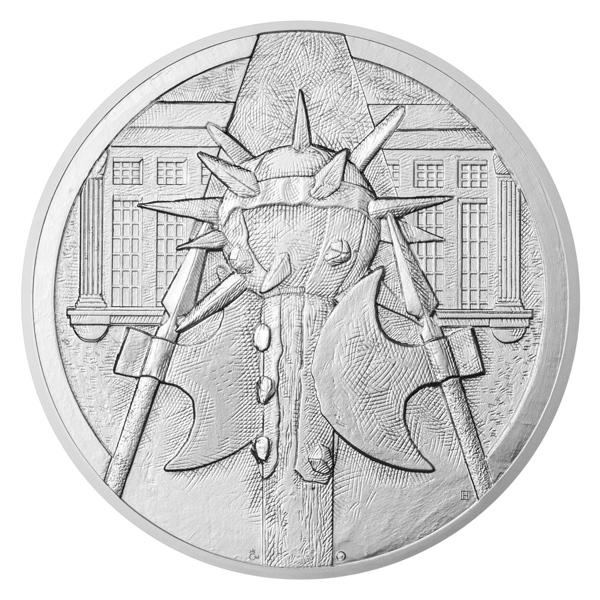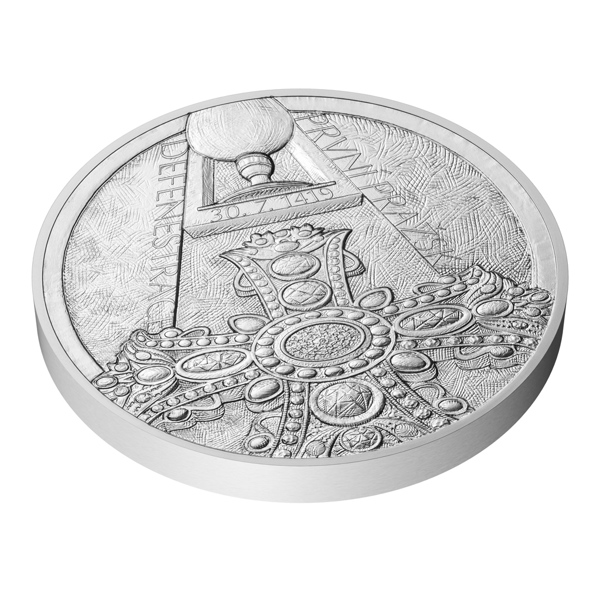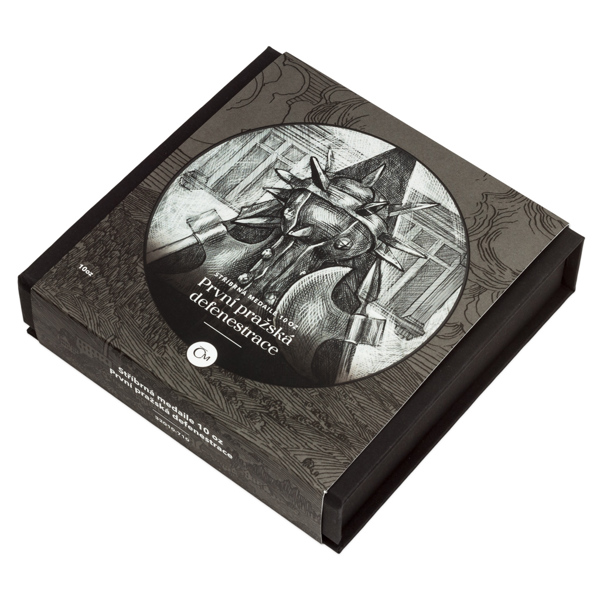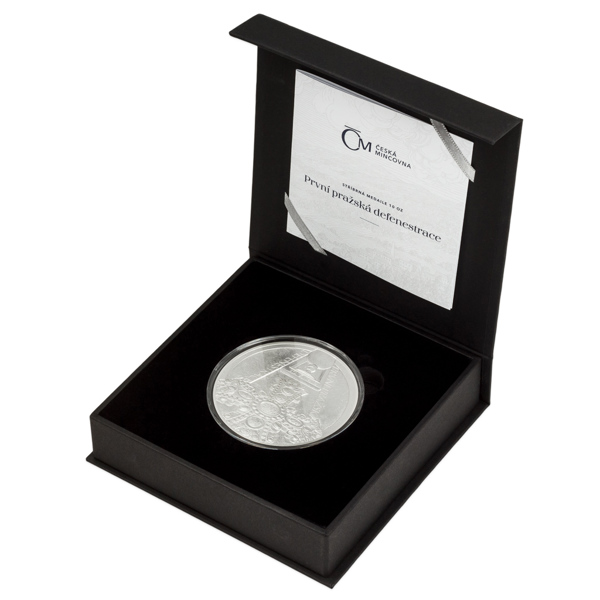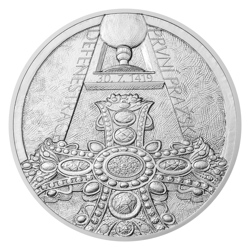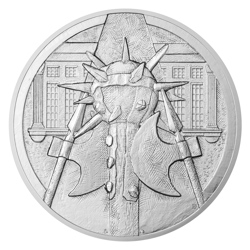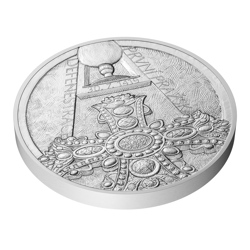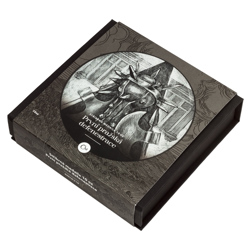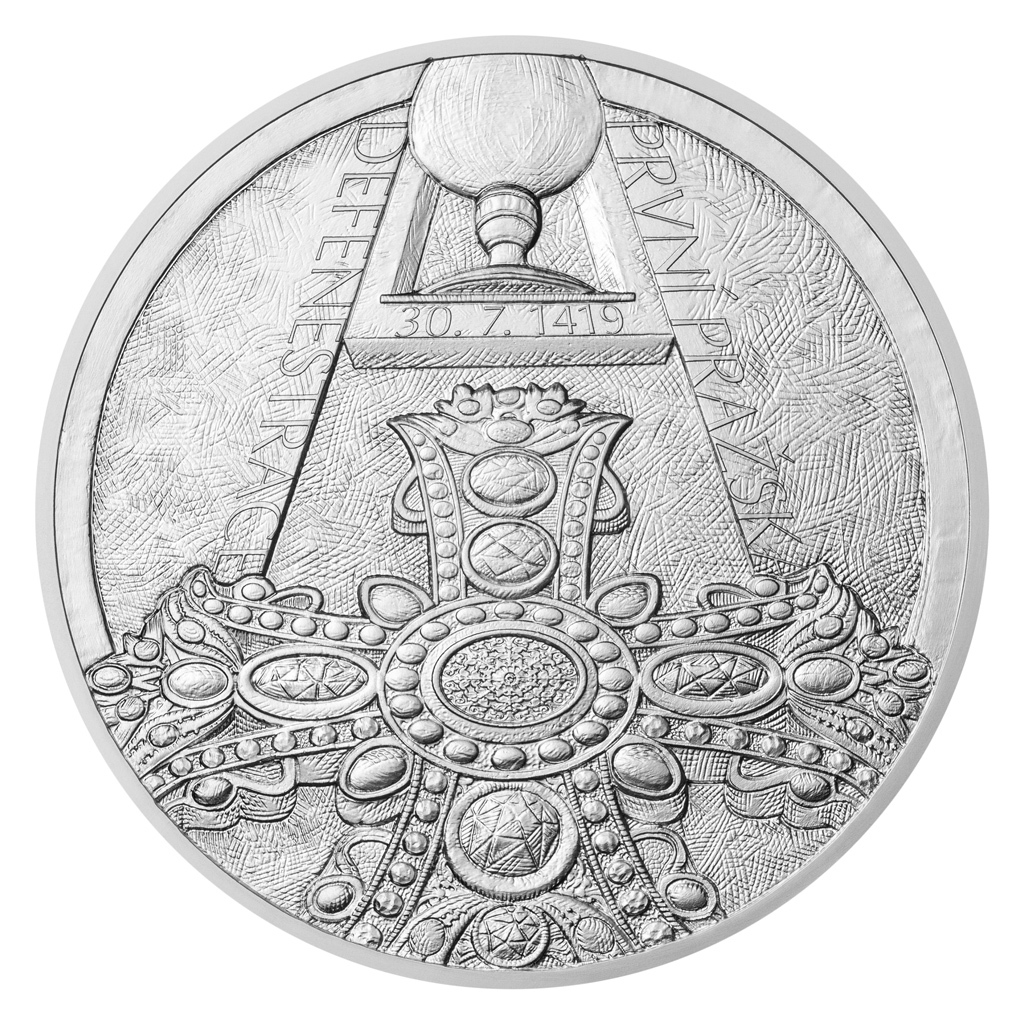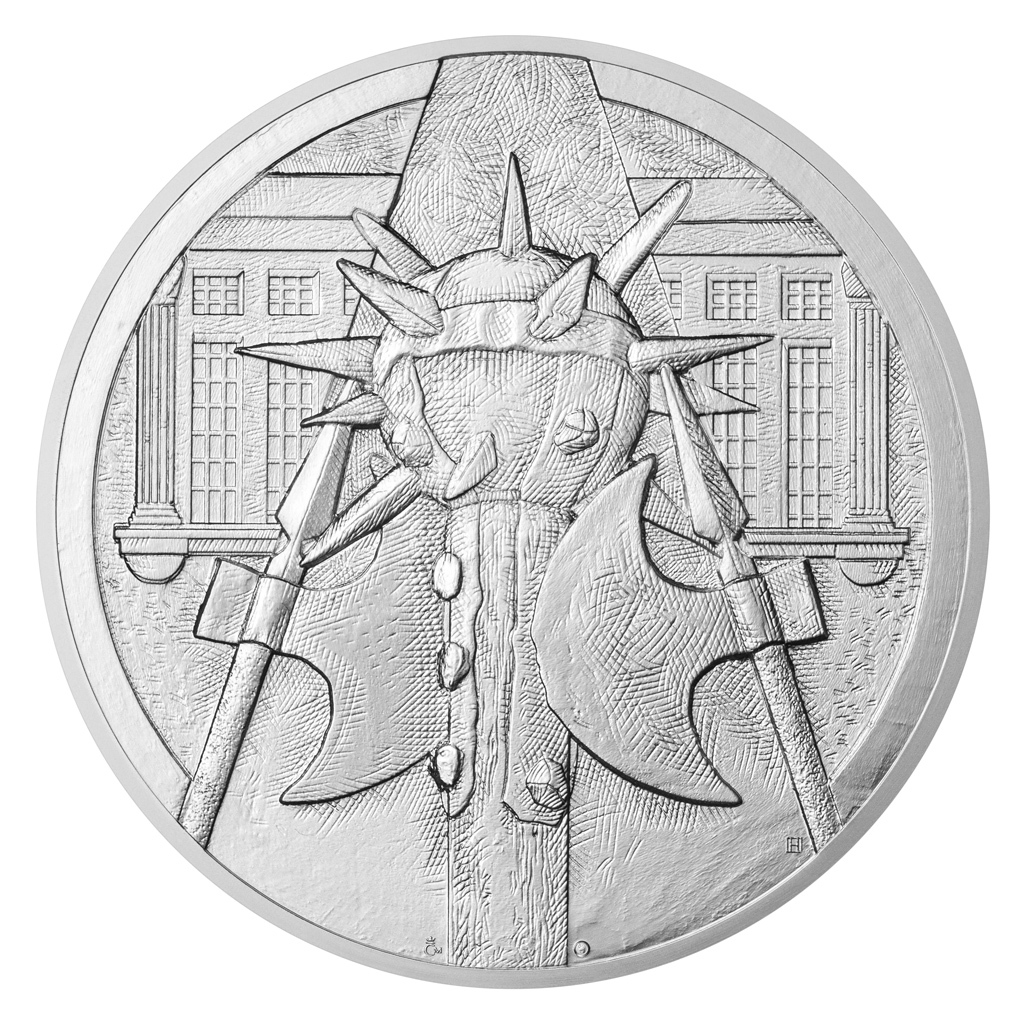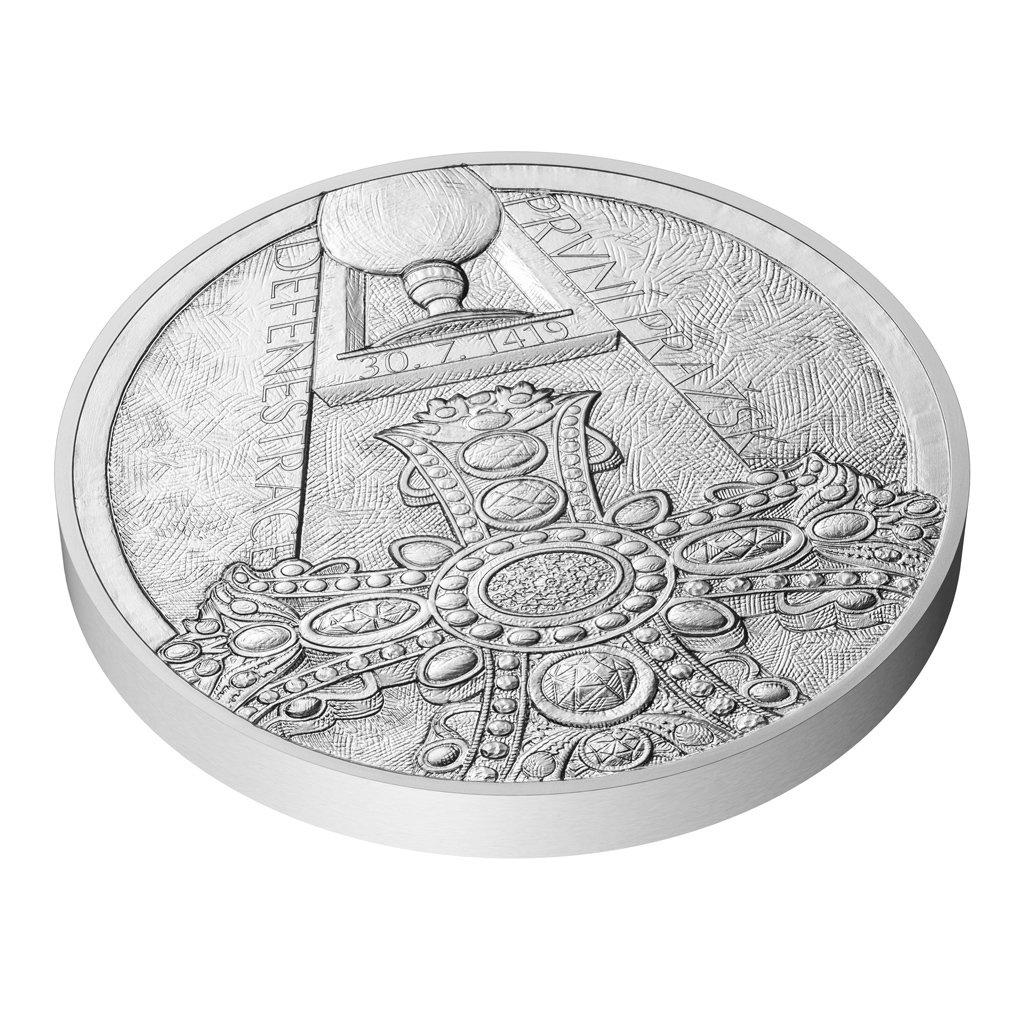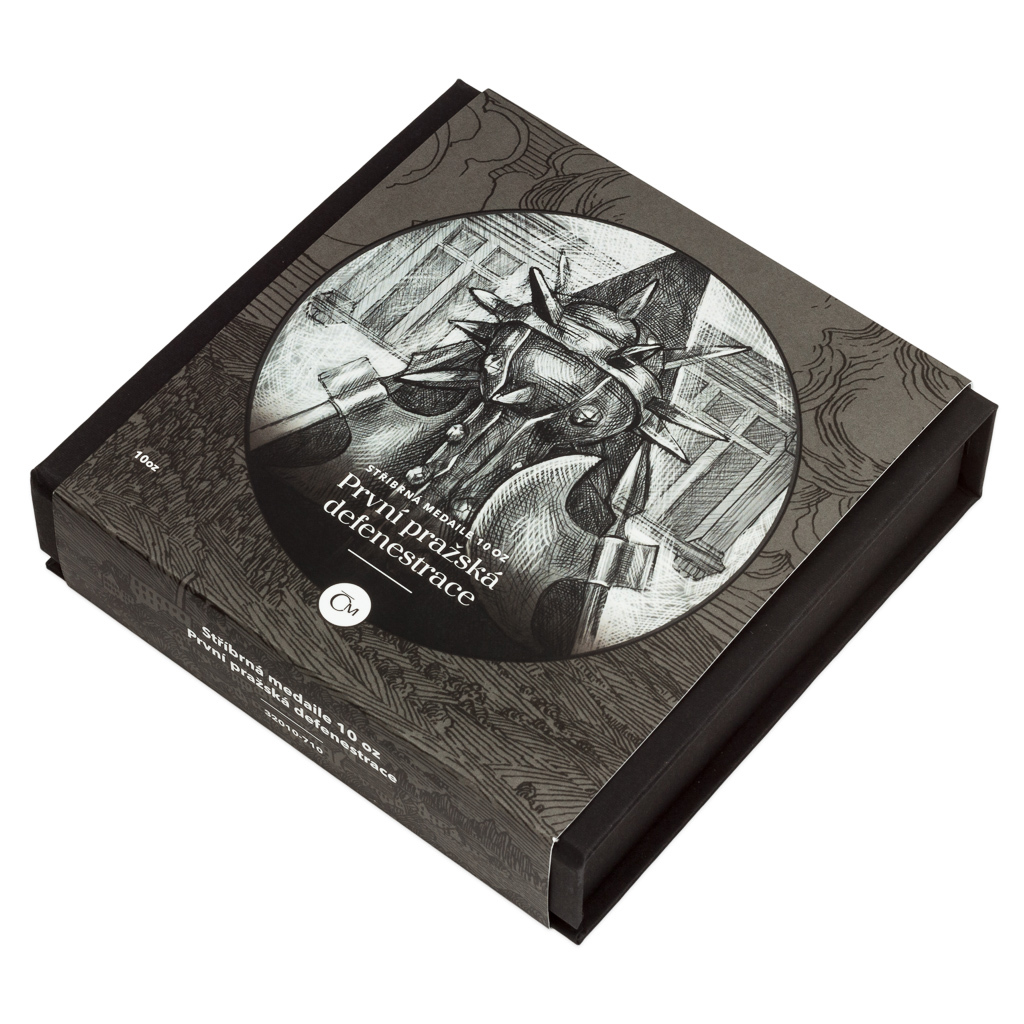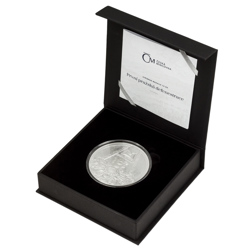Silver 10oz medal Defenestration of Prague stand
Personal pickup at the store
Product description
The first blood of the Hussite wars was shed during the first Prague defenestration. This key event in Czech history served as the theme for the silver commemorative medal of the Czech Mint.
When the Catholic Church burned Master Jan Hus in 1415, it was convinced that his reformist ideas had burned with him. It had no idea how deeply they had taken root in the Czech lands and how hard the faithful would bear the death of their beloved teacher. The country folk indulged in listening to wandering Hussite preachers, in the towns there were disputes over churches between supporters and opponents of Calixtinite ideas, and Catholic priests were expelled from their shrines. The Czech King Wenceslaus IV initially protected the Hussites and kept a low profile in religious disputes. However, when his brother, King Sigismund of Hungary, threatened him with the loss of his throne and when the Hussites dared to dictate their demands to him in public, he decided to intervene. He ordered the Hussite priests expelled from the churches they occupied and installed an anti-Hussite council in Prague's New Town, which immediately began to persecute the followers of the Chalice. One of the Hussite preachers who was expelled from his church was Jan Želivský. A former Premonstratensian monk and fanatical follower of the Reformation doctrine, he delivered a fiery speech on 30 July 1419 that brought the assembled Calixtines to a boil. The outraged crowd marched to St. Stephen's, broke down the door, and ushered Želivský back into his church. Those attending the mass then received not only the host symbolizing the Lord's body, but also the wine representing his blood. Meanwhile, the agitated New Town councillors gathered to confer on how to put an end to the riot. But by then a crowd led by Želivský had arrived at the windows of the town hall, demanding the release of his brothers from prison. When the councillors, led by the purgrave, refused, the crowd overpowered the guards and stormed the building. The Hussites threw the officials who were not on the spot out of the windows on prepared spears. When Wenceslaus IV learned of this brazen defenestration, he suffered a stroke. He didn't live to see the Hussite wars that engulfed Europe...
"The main idea of the medal is to replace the old order with a new one. I wanted to avoid the usual scenes - people being thrown out of the window that everyone knows - and to conceive the medal as a symbolic representation of the whole situation," explains the medal maker Jiří Hanuš, DiS. "The symbol of Catholicism - a richly decorated cross, which expresses the luxury of the Church of that time - falls out of the window, where it has been replaced by a chalice," the author describes the obverse side of the medal. The composition of the obverse side is supplemented with the text FIRST PRAGUE DEFENESTATION and the date 30 July 1419. The reverse side then presents medieval arms forming a wedge, which symbolises the division of Christians.
A large medal commemorates the great event - the weight of the silver coinage is ten troy ounces.
 čeština
čeština
 slovenčina
slovenčina
 english
english
